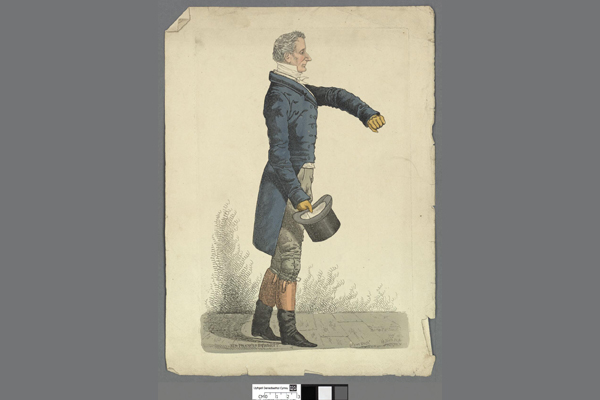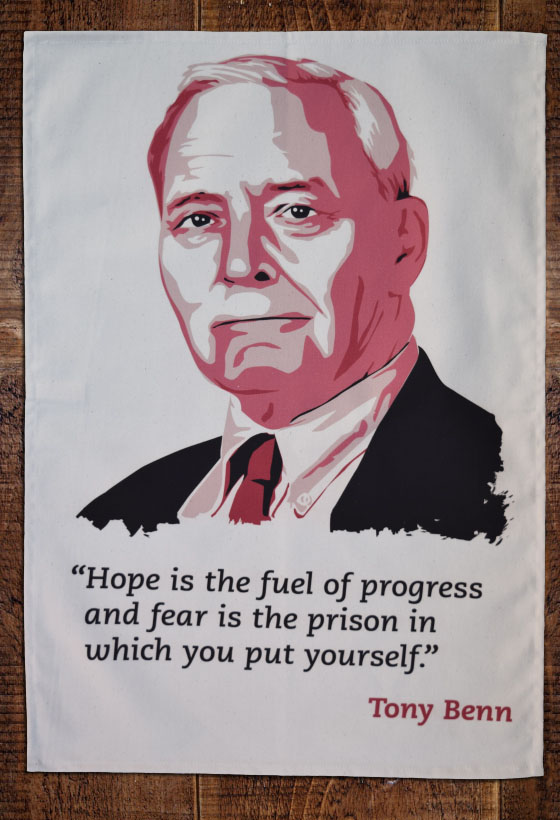We use cookies to make your shopping experience better. By using our website, you're agreeing to the collection of data as described in our Privacy Policy.
Breaking Ranks: The Story of Sir Francis Burdett
Born today in 1770, Sir Francis Burdett, 5th Baronet of Bramcote, was a radical you might not have expected.
The decades either side of 1800 – the so-called 'Age of Revolutions' – were a time of closed ranks for the European aristocracy.
With their stale privileges as a class being challenged by revolutionaries from Paris to Philadelphia, most members of the feudal elite were easily corralled into a project of anti-democratic reaction.
But Sir Francis Burdett of Bramcote (1770-1844) didn’t get the memo.

A scion of the Burdett family, a fixture of the English aristocracy in Wiltshire, Francis inherited his grandfather’s Baronetcy before the age of thirty, in 1797. The year before he had entered Parliament as MP for Boroughbridge.
The British government of William Pitt the Younger was focused on the war with revolutionary France – and repressing its sympathisers at home.
While conservatives in Britain recoiled from the overthrow of the Bourbon monarchy by an apparent outburst of popular power in France, others saw in it the hope of a more democratic future.
English intellectuals like Mary Wollstonecraft and Tom Paine wrote in favour of the French Revolution and became popular among the public.
This provoked a repressive backlash against civil liberties by Pitt’s government, fearful that the British people might also be tired of aristocratic hierarchy.
But Burdett, his personal class interest be damned, stood against this authoritarian turn in the House of Commons.

As well as denouncing the war with the French Republic, he opposed the suspension of the Habeas Corpus Act in Britain, which allowed the unlawful imprisonment of ‘seditious’ radicals.
In 1798, Burdett campaigned with Catherine Despard against the inhuman conditions faced by her husband, Colonel Edward Despard, and other political radicals in Coldbath Fields Prison, London.
During a brief moment of peace between Britain and France, Burdett even visited Tom Paine in Paris, giving the radical democrat money he needed to pay off his debts and return to that other corner of the Age of Revolutions, the United States.
Once the bloody war had resumed, Burdett was again at loggerheads with the British Establishment.
In 1810, he found himself briefly in prison for ‘libelling the House of Commons’.
He had protested the imprisonment of the radical, John Gale Jones, by the House of Commons as an overstep of its authority. Soon enough, he was in the Tower of London himself.

Burdett’s turbulent political life is a revealing window into the political tyranny unleashed on Britain by its aristocratic elite during the war against France.
But neither the tyranny, nor Burdett’s dissent, ended with the coming of ‘peace’.
The end of hostilities with France in 1815 did not bring social harmony in Britain. The people – whose blood and toil had won this war – continued to demand political rights, and Francis Burdett continued to stand with them.
Anticipating the demands of Chartism, in 1817 and 1818 he proposed to the House universal male suffrage, equal electoral districts, vote by ballot, and annual parliaments.
A couple years later, he was locked up again. This time for "composing, writing, and publishing seditious libel" after he denounced the Earl of Liverpool’s Tory government for its monstrous perpetration of the Peterloo Massacre in 1819.
In the last decade of his life, after the passage of the 1832 Reform Act, which slightly expanded the franchise in Britain, Francis Burdett retreated from his radical politics, but the tradition remained strong in his family.
Feargus O’Connor, for instance, whom Burdett had taken in as an adopted son, became one of the most famous leaders of British Chartism later in the century.

Wealth and social rank might go a long way to explaining the politics of a person, but there are limits to their power.
Ideals and convictions are not redundant. The history of Britain is rich in the nobility of women and men who betrayed their elite background to stand with the people, from the democratic dissent of Sir Francis Burdett to the radical socialism of John Cornford and Tony Benn.



